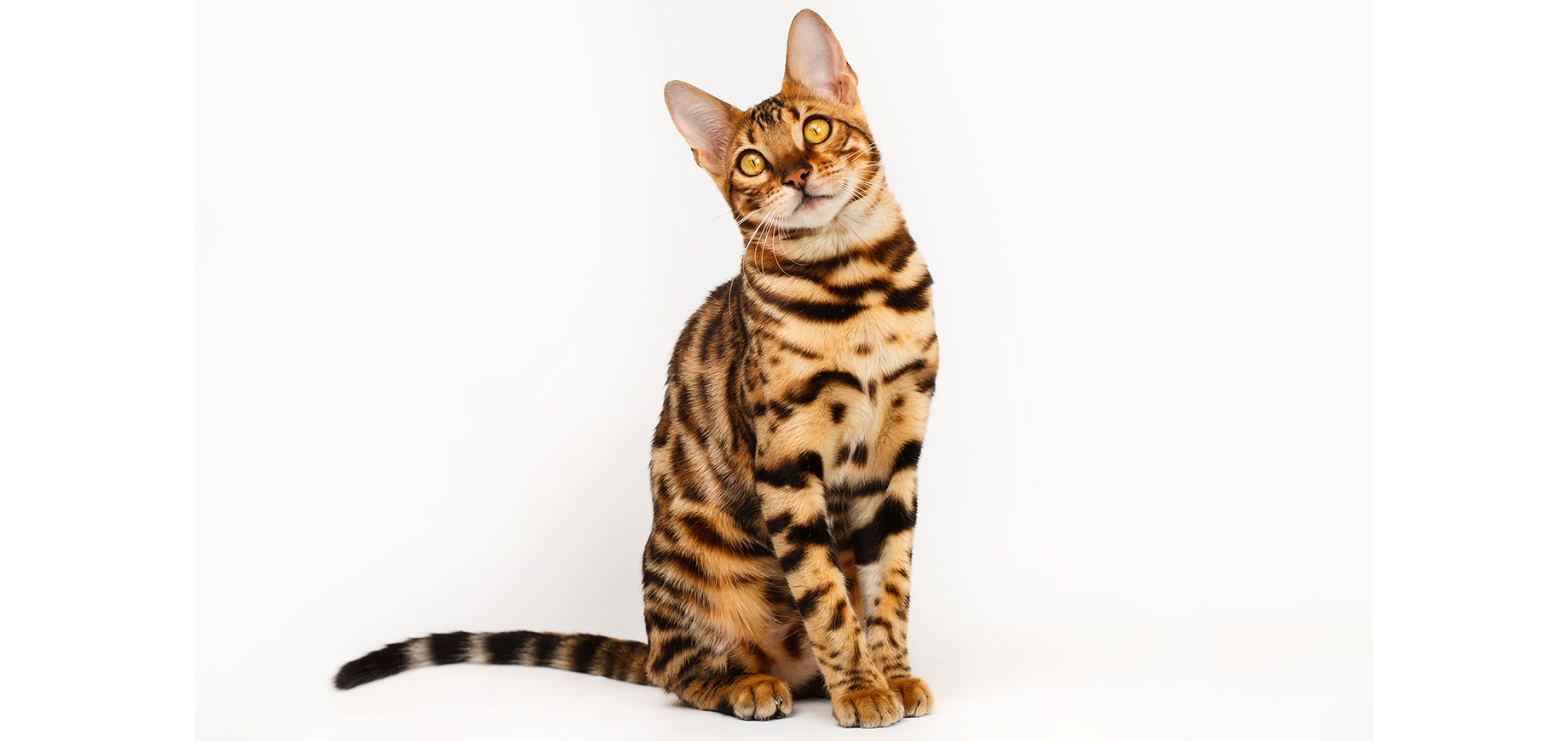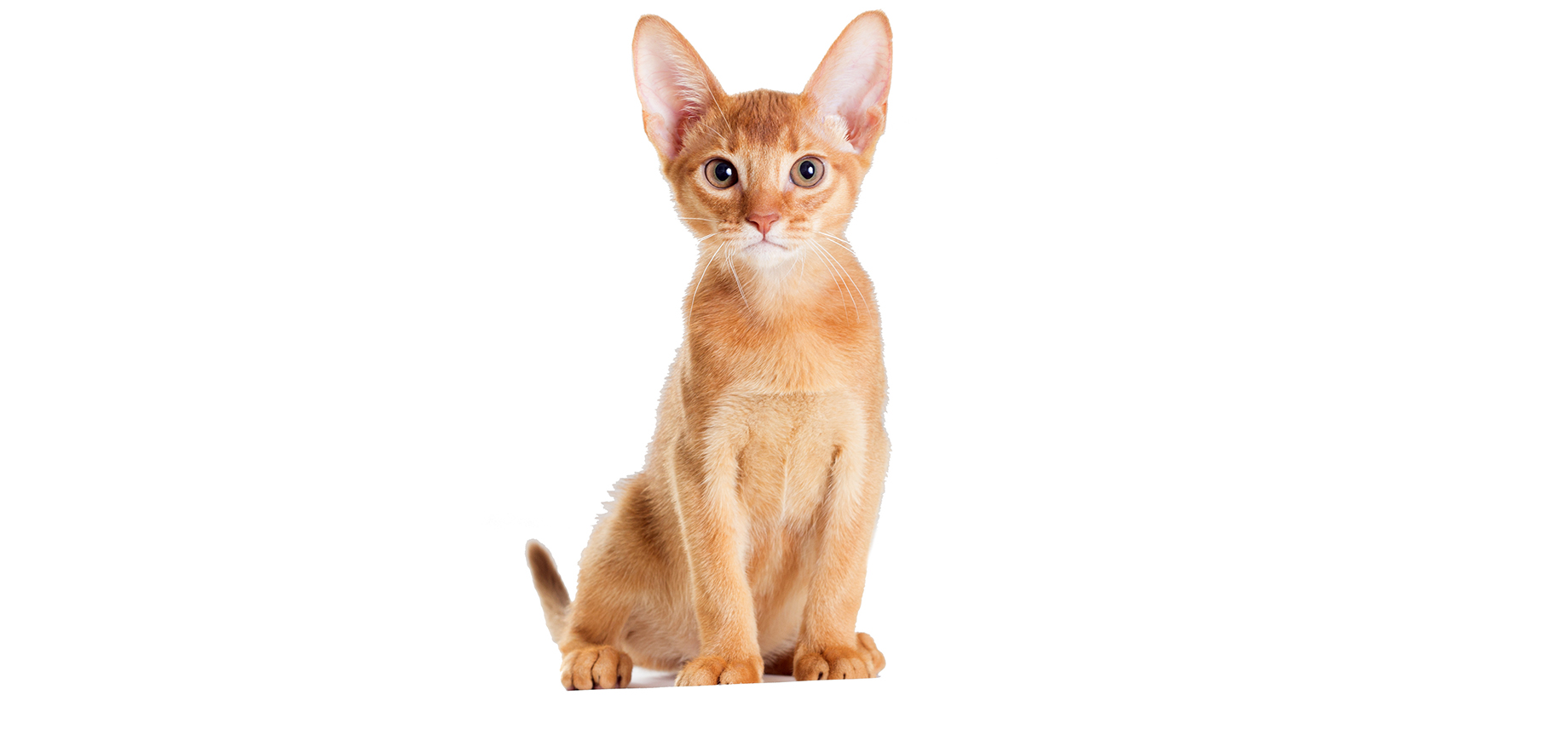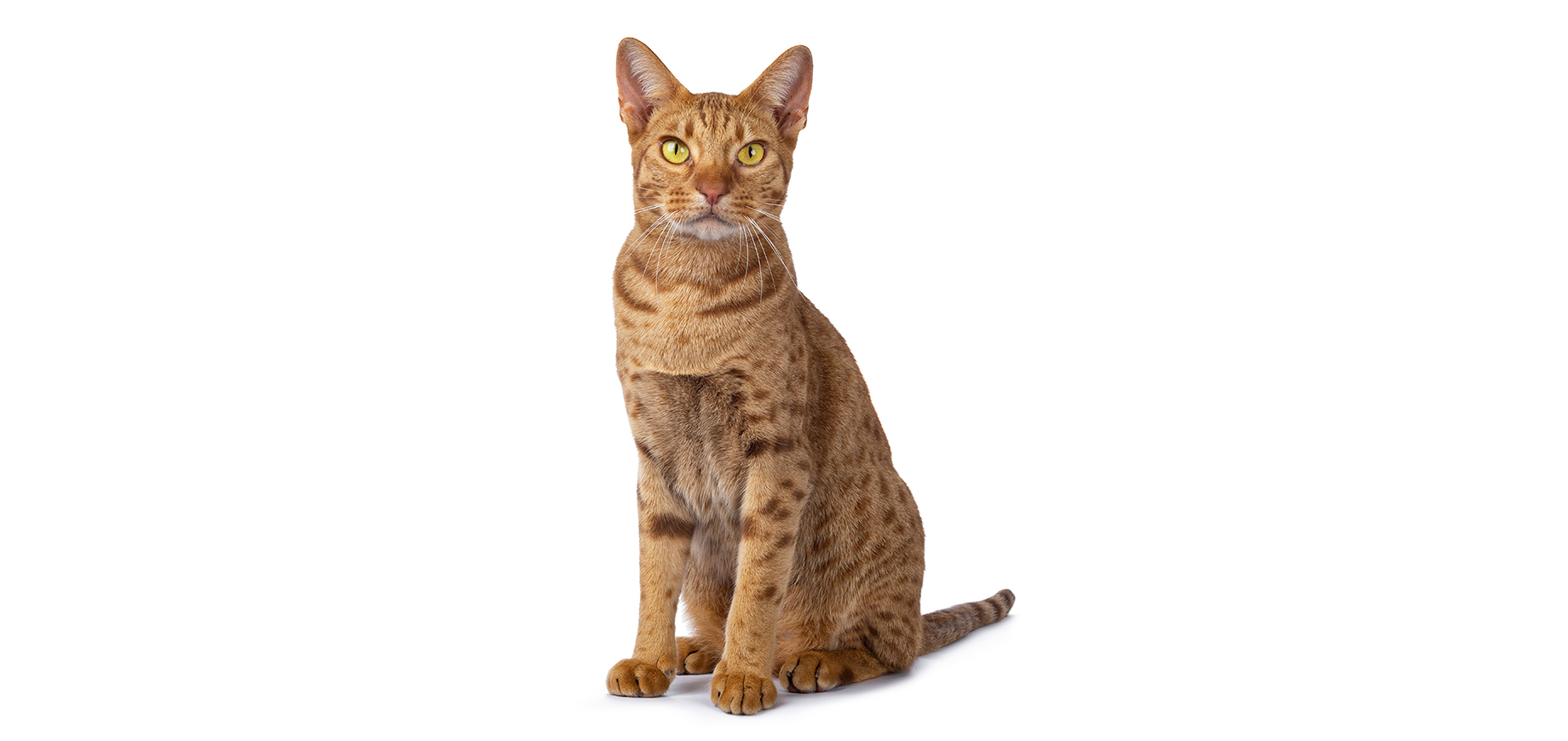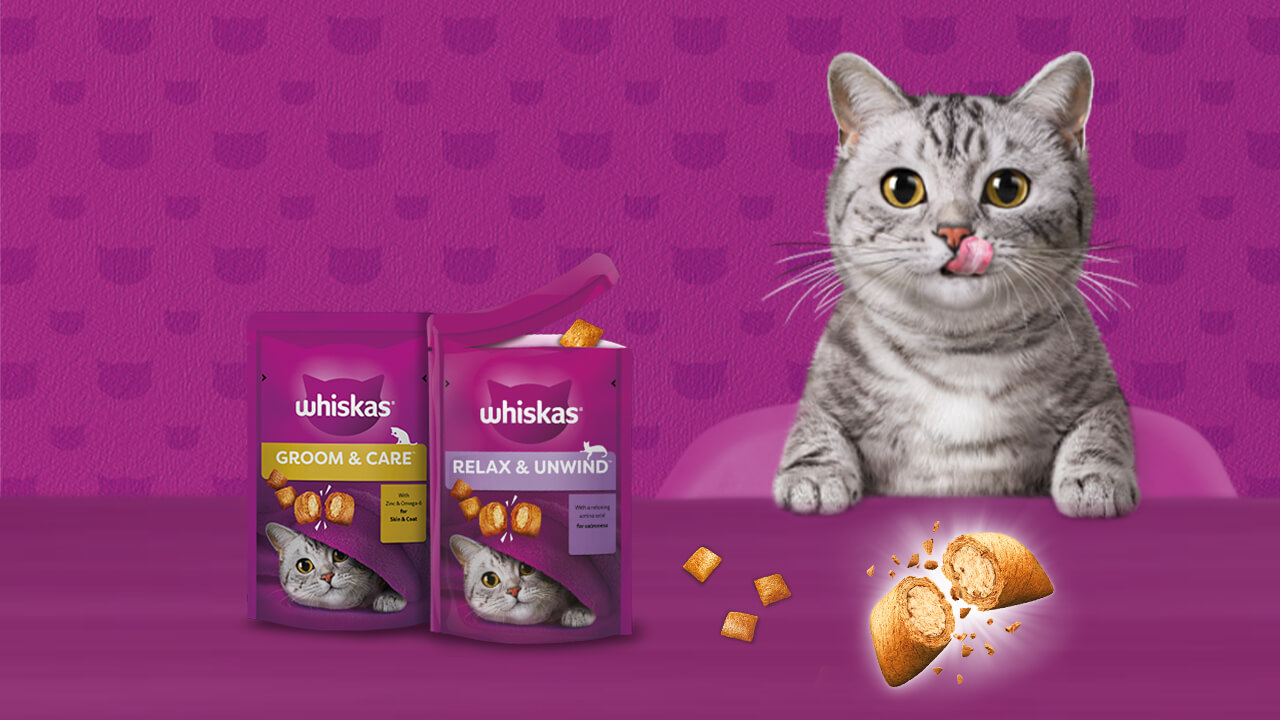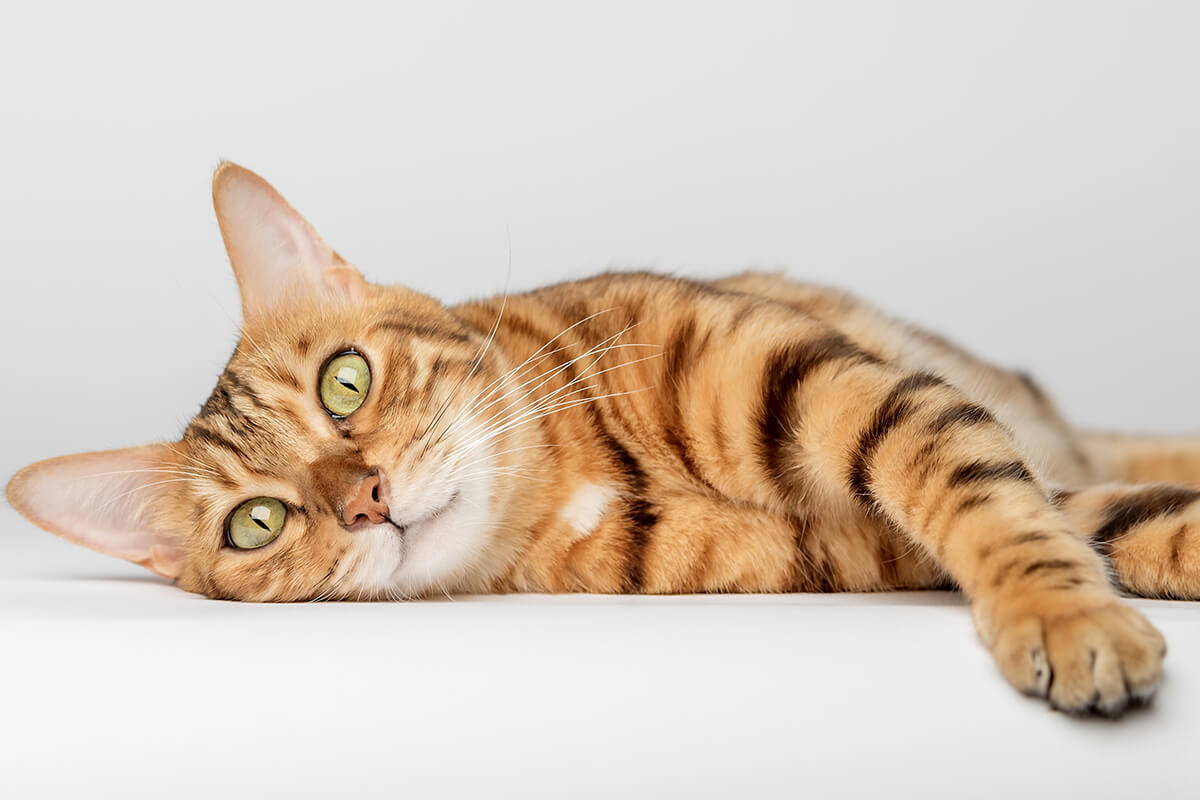
Bengal cat overview
The Bengal is a wild looking cat with a sweet personality. These cats are known and admired for their dense, short coats which have beautiful spotted or marbled patterns. Due to the length of their fur, they do not require as much grooming as long haired breeds, however they still need to be groomed every so often. Key Bengal cat characteristics revolve around their loyal and friendly nature, which makes them well suited to being family pets. Bengal cats are medium-large in size and full of energy.
Bengal cats have a lifespan of approximately 12-15 years, however, some pets can live much longer.
Breed history and origin
The Bengal is a modern, hybrid breed that was created in America in the 1990s by Jean Mill. Bengal cats were developed by mixing an Asian Leopard Cat with domesticated tabby cats and a variety of other shorthaired breeds.
Other commonly mixed breeds include:
Key characteristics of the Bengal cat breed
Bengal cats are famous for their exotic appearance, marked by their leopard-like spots or rosettes, as well as their playful and outgoing personalities! Bengal size can vary from medium-large, they are domestic cats with long and muscular bodies covered with a short, dense haired coat.
Despite their wild appearance, Bengals are known for their kind and intelligent characteristics, they are also very active and crave attention, affection and play.
Physical characteristics of the Bengal cat breed
Bengal cats are medium-large in size and are known to be full of energy! They tend to have longer back legs and are excellent at jumping, climbing and sprinting. Females generally weigh up to 5.4kg, males can reach up to 6.8kg. This breed can appear larger than they are due to their athletic build.
Their distinguishing features include their unique coats, which come in two gorgeous coat patterns: spots and rosettes. Colour and coat patterns vary and this makes the breed especially unique. Some Bengal coats are described as “glittering” and almost sparkle in natural light. They also may have ear tufts, usually darker in colour.
Bengal cat’s grooming and hygiene needs
The Bengal is a shorthaired cat and therefore will require less grooming than their longer-haired counterparts, they also don’t shed as much.
We suggest the following at-home grooming routine for maintaining your pet’s ears, coat, nails and eyes:
- Bengal cats should be groomed every 1-2 weeks with a good quality slicker brush to keep their coats silky and remove dead hair and skin.
- Focus your attention on the head of your cat first and work towards the tail, make sure to brush your cat's legs and belly too.
- Due to their thinner coat, Bengals rarely need to be bathed. They also enjoy water more than other breeds and will seek it out if they are outdoor pets.
- You can also clean your pet’s eyes with a soft wet cloth or cotton wool pad, removing any build-up of eye discharge and keeping the fur of your cat’s face clean.
- If your Bengal is an indoor cat you will also need to trim your cat’s nails to keep them healthy. You can do this at home using cat nail clippers or visit your local groomer if you find your pet is not cooperating.
Bengal cat’s behaviour and training needs
Bengals can be known for their mischievous, dog-like personalities, therefore some training may be required at an early age, however, due to their highly intelligent nature they are easily trained pets.
Litter training Bengal kittens is the first step to ensuring your pet settles into their new home smoothly. Litter training requires placing the kitten in the litter tray every 1-2 hours, showing them how to use their paws while inside the litter tray and providing gentle encouragement. Soon your pet will pick up these cues and litter training will be complete. Litter training comes naturally to this smart breed.
The key to training Bengal kittens is to incorporate positive reinforcement by ignoring bad behaviour and rewarding good behaviour. You can also explore teaching your pet basic tricks, like sitting, playing hide and seek and responding to different commands using positive reinforcement (treats!) or a training clicker.
Early socialisation is always important to ensure your pet gets on well with everyone coming into your home and improves your cat’s overall behaviour. Problems like scratching furniture or excessive meowing can be resolved by making sure your cat has access to scratching posts to take this energy out on instead and socialising and playing with your pet every day with their favourite toys and treats.
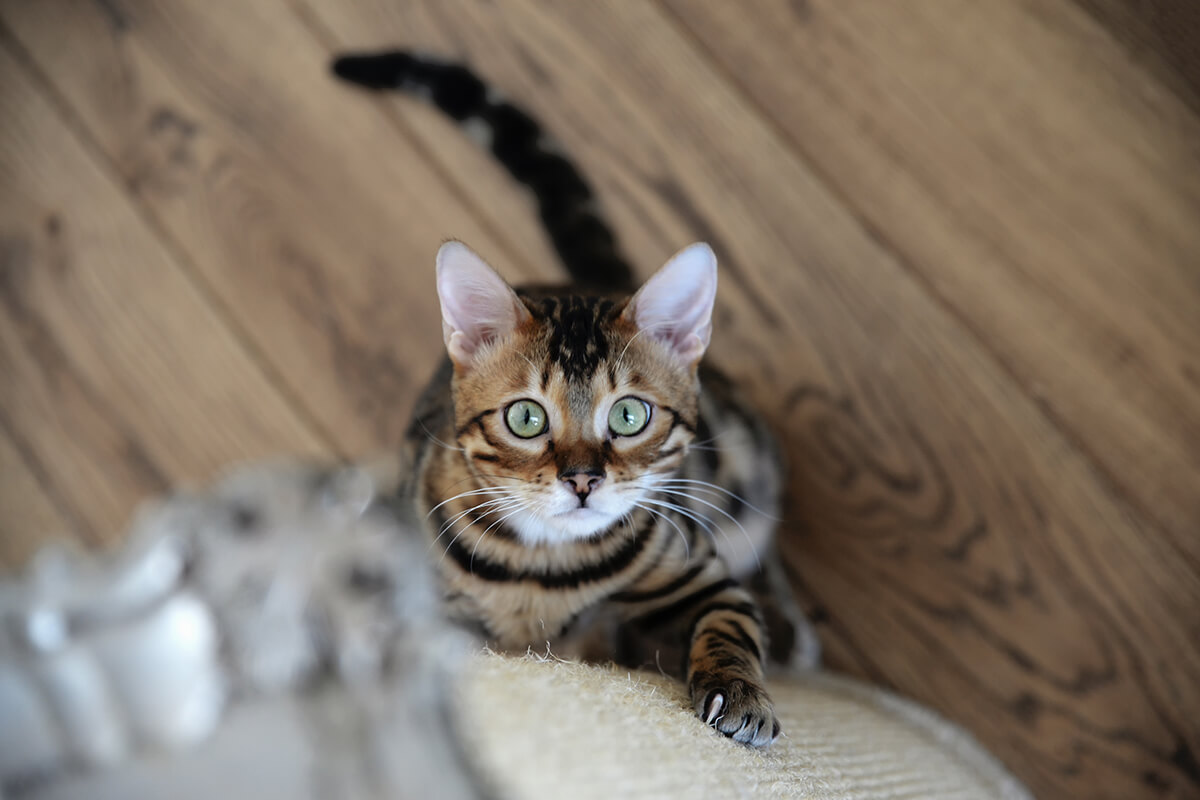
Mental and physical engagement for Bengal cats
Some suggestions for keeping your Bengal kitten or cat mentally stimulated include puzzle toys filled with WHISKAS® Cat Treats, cat shelves, cat trees, and wall-mounted climbing walls, as this breed loves to climb and jump like their wild ancestors.
Bengal’s are known for their boundless energy and may require more attention and playtime than other breeds. Ideally, they require a large, enclosed outdoor space to explore as they are highly active and intelligent pets.
Bengal cat’s nutritional requirements
Your pet's diet is extremely important for maintaining their overall health, so selecting a high-quality cat food brand that you can trust is key. With Bengal cats it is important to feed them a balanced diet that is high in fat and low in carbohydrates with a key focus on high quality protein. You can achieve this by including quality wet food like WHISKAS® Cat Food.
Bengal cats can be sensitive to cat food that is rich in grains and gluten, a grain-free/gluten-free diet may be required if your pet shows signs of dietary sensitivities.
Hydration is also very important as Bengals love to drink a lot of water, especially running water from a tap. Providing a water fountain as well as a bowl can help quench your pet's thirst, wet food also provides a natural source of hydration.
Are Bengal's suitable for families?
Bengals make wonderful family pets due to their inquisitive and affectionate nature.
Bengal cats are extremely fond of children due to their curious minds, they also get on well with dogs and other cats. They can be known to become very attached to their favourite member of the family.
The Bengal cat’s key characteristics mean that they are a very adaptable breed, however they may take a little longer to grow accustomed to their new surroundings. They do just as well indoors as outdoors, supervised outdoor play is recommended and indoor cats will need more mental and physical stimulation due to their energetic nature.
Tips and tricks for socialising your Bengal include:
- Spending quality time with your pet.
- Let your Bengal seek your attention first.
- Gentle introductions to new family members, pets or environments.
- Lots of positive reinforcement.
Finding a responsible breeder for Bengal cats
You must choose a responsible breeder to support ethical breeding practices and ensure the future health of your new pet. Responsible breeding practices play a key role in the well-being of any cat breed. Checking the cleanliness of the kitten’s living conditions and the quality of the kitten food provided, is essential.
Doing your research is key to finding a reputable breeder, look for people with an excellent reputation within the Bengal community and make sure they are registered breeders. You can also ask for references from previous buyers, to see the mother and father of the kittens and request information about genetic testing and vaccinations.
Genetic health consideration
Unfortunately, all breeds have some common genetic health issues to be wary of, this further emphasises the need for genetic testing to ensure responsible breeding practices. Responsible breeders should show you the cat's paperwork, including genetic testing.
Bengal cat: FAQ
Are Bengal cats very expensive?
Yes, Bengal cats are a purebred breed and therefore they can be very expensive, ranging anywhere from £1,000 - £10,000, this means choosing the right breeder is even more important. Always look for accredited Bengal Cat breeders and do as much research as you can to ensure you buy your Bengal from an ethical breeder.
Are Bengal cats high maintenance?
Yes, Bengal cats are known for being a more high maintenance cat breed, this means they will require more playtime, affection and attention that other breeds. Bengals crave human company and create strong connections with their owners, they are highly intelligent creatures and you will need to keep them mentally and physically stimulated.
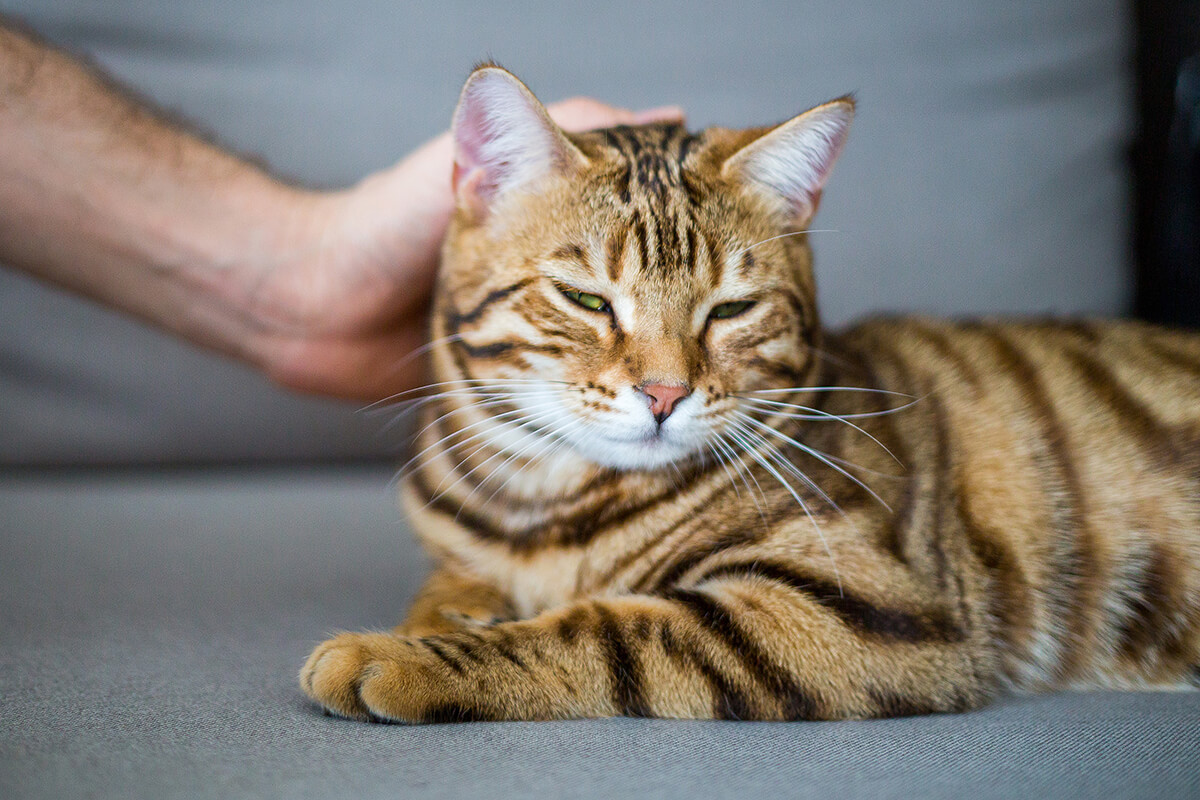
Can I own a Bengal cat in the UK?
Yes, Bengal cats are legal in the UK! However they are known for being a more high maintenance cat breed, this means they will require more playtime, affection and attention that other breeds. Always look for accredited Bengal Cat breeders and do as much research as you can to ensure you buy your Bengal from an ethical breeder and support ethical breeding practices.
Ultimately Bengal’s are exotic looking animals with a friendly and curious personality. Bengal’s are loyal, energetic and mischievous pets. They work well in a busy household, and get along with other pets, as long as they are introduced with love and care. Bengal’s will shower you with love and affection as long as you give them all the attention they need, they love interactive play.
Interested in finding out more about different cat breeds? Check out our breed finder page.

